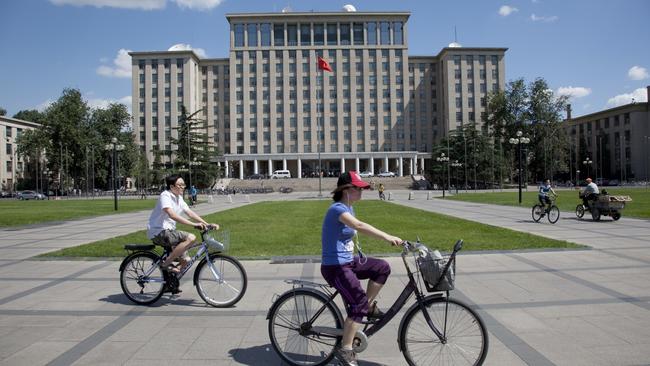Beijing boosts capacity of Chinese universities
Beijing boosts capacity of Chinese universities, which could reduce demand for overseas education in Australia and other countries.

Beijing’s warnings against study in Australia may not be the only factor that threatens the number of international student arrivals — China also plans to expand the capacity of its local universities.
As Australian universities are ramping up efforts to bring back some international students via charter flights next month, their prospective students in China now have more study options available that could allow them to remain in China for longer — or for good.
A key measure in Chinese Ministry of Education policies announced late last month is to boost a “second degree” initiative across universities that encourages a new graduate, or a recent graduate in the past three years, to study for another two years to acquire a second bachelor degree in areas with high employment demands.
READ MORE: New dawn for students | 800 international students for SA | Axe the tax on student loans | $20m gift for Sydney Uni | Why the skills sector has failed |
The push for the second degree program, after it was suspended in the middle of last year, is part of China’s latest policies to reduce pressure on its post-coronavirus job market. Other measures include expanding student recruitment in domestic universities; providing grants for graduates’ start-ups; urging state enterprises, research institutions and the public sector to create more graduate roles; and absorbing more graduates into the defence force.
The ministry announced at a press conference in February its aim to increase master degree numbers by 189,000 and increase bachelor degree upgrades from undergraduate diplomas by 322,000.
These alternative paths for graduates could deter Chinese students from pursuing postgraduate studies abroad straight after finishing their degrees in China, which has been a popular reason to come to Australia to study.
Last year, of the more than 164,000 Chinese students enrolled in Australia’s higher education system, 49 per cent of them were doing postgraduate qualifications including master-level and doctoral degrees, according to federal Department of Education, Skills and Employment data.
Against the backdrop of the pandemic, Beijing’s new education policies, along with the Australian study alert and other discouraging factors, may lead Chinese students to change their mind about studying overseas.
The other factors include general health concerns about the coronavirus, uncertainty of border and international flight arrangements, cancellation of English language tests that affect their academic application, reluctance to study online, and potential changes to their household financial situation.
“Chinese students seeking postgraduate studies probably make up 40-45 per cent of all (Chinese) students who intend to study abroad,” Beijing-based education consultant Aaron Jiang told The Australian.
“Safety is a main consideration for Chinese students. Anti-Chinese and anti-Asian sentiment in Australia widely reported by media will cause some students to ditch Australia.
“It (the media) also reports that the pandemic has not been controlled very well in many Western countries, which will concern those parents of younger students (and may persuade them) to keep their kids in China.”
In April, the British Council’s survey of nearly 11,000 Chinese students considering higher education in Britain revealed 39 per cent of them are undecided about their study plans.
Some argue that many Chinese students who initially intended to study in the US may now look to other English-speaking countries, such as Australia, following the US government’s tightening of visa policy for Chinese students. But ongoing diplomatic tensions between the Chinese and Australian governments also may affect Chinese students’ decisions.
The Chinese media has reported increasing numbers of closures of education and visa agents in China because of declining interest from students, and an intense competition between global universities, which are providing fee discounts and lowering entry requirements.
Another emerging option for prospective students or current students who are stranded in China by travel bans is taking bridging courses, summer school courses and individual units online or in mixed mode to allow them to study in China now and transfer credits to designated overseas universities later.



To join the conversation, please log in. Don't have an account? Register
Join the conversation, you are commenting as Logout